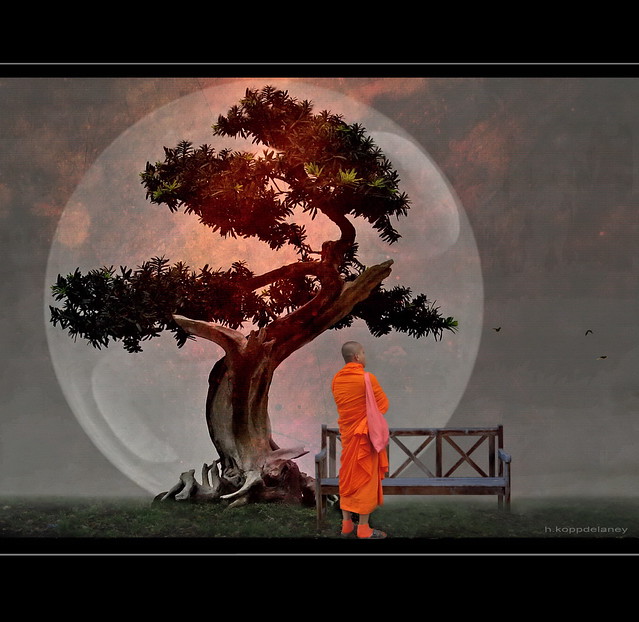 Martha C. Nussbaum makes the case that amid the fears, resentments, and competitive concerns that are endemic even to good societies, public emotions rooted in love – in intense attachments to things outside our control – can foster commitment to shared goals and keep at bay the forces of disgust and envy. Jules Evans finds this book an interesting read that attempts to re-connect modern philosophy to emotions, psychology, the arts, and to public policy.
Martha C. Nussbaum makes the case that amid the fears, resentments, and competitive concerns that are endemic even to good societies, public emotions rooted in love – in intense attachments to things outside our control – can foster commitment to shared goals and keep at bay the forces of disgust and envy. Jules Evans finds this book an interesting read that attempts to re-connect modern philosophy to emotions, psychology, the arts, and to public policy.

Political Emotions: Why Love Matters for Justice. Martha C. Nussbaum. Harvard University Press. October 2013.
Should liberal governments try to cultivate certain emotional states in their citizens? In Political Emotions: Why Love Matters for Justice, philosopher Martha C. Nussbaum argues that liberal political philosophers have dangerously ignored ‘the political cultivation of emotion’. Philosophers from Locke to Rawls have failed to explore how governments can encourage pro-social emotions like love, patriotism and tolerance, while curbing anti-social emotions like envy, shame and excessive fear.
There have been exceptions to this emotional illiteracy in liberal philosophers, says Nussbaum. Rousseau imagined a ‘civil religion’, which would fuse the people together in ecstatic worship of the state (his ideas bore fruit during the French Revolution in the bizarre Cult of Reason.) The social scientist Auguste Comte also developed his own eccentric ‘Positivist religion’ which he planned to impose on the citizenry in his ideal state.But Nussbaum finds these solutions unsatisfactory. Any sort of imposed religion – theistic, civil or positivistic – is illiberal and probably doomed to failure. Following Rawls, Nussbaum believes the state should not impose any ‘comprehensive theory of the good’ onto its populace. Nonetheless, she thinks it proper for a liberal state to encourage certain pro-social emotions as a psychological foundation for political stability. Rational utilitarianism isn’t enough – we need a more full-blooded ‘enthusiastic liberalism’.
Nussbaum is not alone in this desire for a more emotional politics. There has been a revival in the last two decades of Aristotle’s contention that it is the proper role of the state to encourage eudaimonia, or flourishing, in the citizenry. One finds this idea in a spate of books and articles on the politics of happiness, well-being and virtue over the last 20 years, by the likes of Richard Layard, Geoff Mulgan, Jeffrey Sachs, Derek Bok, Robert and Ed Skidelsky and others.
There has also been a growing interest in ‘political theology’, or the role of religion (whether theist or atheist) as an important cultivator of political emotions, in thinkers as diverse as Ronald Dworkin, Roberto Unger, Alasdair MacIntyre, Maurice Glasman, Jonathan Haidt, John Gray and Simon Critchley. There is a growing sense that liberal societies need more than rational skepticism, that we either need to return to religion (see the current popularity of the Pope and Archbishop Welby among political reformers) or to find some secular alternative.
Let’s say we accept the proposition that liberal societies are failing to promote the proper emotions, and this is threatening their long-term survival (this is a big claim, and Nussbaum does not do enough to back it up). Let’s say we accept her list of ‘good’ emotions and ‘bad emotions’ (are shame and envy necessarily bad for the polis? Protagoras and Adam Smith might disagree). The question remains: how can governments promote emotions in their citizens, without becoming cultish and totalitarian? What policy levers are available to the budding political psychologist?
Nussbaum rightly recognizes that if politicians really want to reach into the souls of their citizens and stir their emotions, they need the arts and humanities: symbols, metaphor, gesture, rhetoric, poetry, music, dance, monuments, architecture, festivals, pageantry, all the cultural apparatus that the Church wielded so expertly before the Reformation and Enlightenment tore it down as so much superfluous bunting.
With her usual critical acuity, she provides close readings of various works of art – the patriotic poetry of Whitman, the songs and dances of Rabindranath Tagore, Mozart’s Marriage of Figaro – to show how deftly they cultivate pro-social emotions in the audience while never becoming fanatical. However, none of these works of art were ‘ordered’ by politicians. They arose spontaneously from the genius of their authors. Artistic genius is unpredictable, the muses tend to resist clumsy advances by politicians. So how can policy-makers directly work with the arts to try and cultivate political emotions? Don’t they have to leave artists alone to experiment?

Politicians can at least create conditions in which artistic talent is more likely to arise, and help to educate a populace to a level where it’s capable of responding to great art. They can do this by encouraging the teaching of arts and humanities in schools and adult education, and by supporting artistic institutions and allowing them to take risks. Nussbaum looks to John Stuart Mill’s inaugural address to the University of St Andrews, in 1867, in which Mill highlights the importance of ‘aesthetic education’ in schools and universities as the foundation for a sympathetic, liberal ‘religion of humanity’.
A second policy tool available to the budding political psychologist is rhetoric. Nussbaum analyses the speeches of Martin Luther King, Churchill, Lincoln and Franklin D. Roosevelt to show how cleverly they cultivated the political emotions appropriate to the crises their countries faced. Today, by contrast, politicians speak in tweet-like soundbites. There’s a lot to be said for trying to raise the bar of political rhetoric in our time, although the presidency of Barack Obama show that rhetorical prowess is no guarantee of successful government.
Despite these examples, my abiding impression of Nussbaum’s book is of the disconnect between academic philosophy and the emotional lives of ordinary people, even with an unusually ‘public’ philosopher like Nussbaum. Her close readings of the Marriage of Figaro or the tragedies of Sophocles are interesting, but alas our citizenry is not as culturally sophisticated as the citizenry of fifth century Athens (we don’t have the luxury of a large slave population to support our leisure). Today, the main aesthetic cultivators of the public’s emotions are pop music, cinema and television.
Yet these are strangely absent from Nussbaum’s cultural analysis (she doesn’t listen to pop and probably doesn’t watch television). This is a pity. The two most successful recent examples of art shaping our political emotions in this country were the Queen’s Diamond Jubilee Concert in 2012 and the Olympic Opening Ceremony the same year. In both of them, pop music played a key role. For good or ill, TV has also profoundly shaped our national psyche, far more than any opera or monument.
Another strange absence from her book is any discussion of psychotherapy and psychiatry – two policy levers by which governments can influence their citizens’ emotions. Aldous Huxley imagined a state where the citizens were pacified through soma. Today, the NHS spends $2 billion annually on mood-altering chemicals, including 50 million prescriptions for anti-depressants. The government has also spent over half a billion pounds on talking therapy, particularly Cognitive Behavioural Therapy, to try and reduce levels of depression and anxiety disorders in the population. CBT, as I’ve explored, was directly inspired by the Hellenistic philosophies that Nussbaum has done so much to revive, and is a way for many ordinary people to discover ancient philosophy.
Nussbaum neglects to consider at any length the importance of religions to political emotions (again, for good and ill). She is rightly wary of governments imposing any particular religion onto its citizenry. Yet, as Jonathan Haidt has explored, if you really want to generate ‘enthusiasm’ in the populace, you will probably need to tap into areas of the mind usually reached by religion. We are moved by the sacred, which is a tricky thing for a secular liberal philosopher like Nussbaum.
Political Emotions is an important contribution to an already impressive body of work. Nussbaum has transformed modern philosophy, helping to re-connect it to the emotions, to psychology, to the arts, and to public policy. She has been a defining influence in the rise of the Neo-Aristotelian idea that philosophy, including political philosophy, can and should transform our emotions. And yet Political Emotions is curiously unemotional, dense, and unlikely to get the pulse racing. It raises the question: can philosophers not merely discuss the public emotions, but actually affect them?
———————————————-
Jules Evans is policy director at the Centre for the History of the Emotions at Queen Mary, University of London. He is also the author of Philosophy for Life and Other Dangerous Situations (Rider Books: 2012) and a BBC New Generation Thinker for 2013. He blogs at www.philosophyforlife.org. Read more reviews by Jules.






It seems to me that one of the most powerful things we could do is to swing the dial somewhat away from competitive and therefore potentially polarising mechanisms of decision making, most particularly elections and somewhat towards ‘unitary’ means of decision making. Starting in 1987 both Australia and Ireland experimented with social ‘accords’ of tripartite bodies representing Government, Labour and Capital and sometimes other partners. Here there are conflicts of interest between the parties in dividing up the spoils, but they are mitigated by the degree to which, if they can cooperate, they can ‘grow the pie’ and negotiate that alongside the division of the spoils. Juries in law and citizens’ juries in politics are also unitary in the same sense – perhaps more so. Each juror’s preeminent interest is a cooperative one – to arrive at a decision with, not in contest with others.
I see electoral democracy and our link-baiting media (including of course social media) as driving huge amounts of polarisation simply because polarisation, identification and hostility against ‘the other’ is such an effective means of amping up engagement.
My argument is expanded somewhat in this post
https://www.themandarin.com.au/75323-nicholas-gruen-detoxing-democracy/
I’d be interested in any reactions to it.